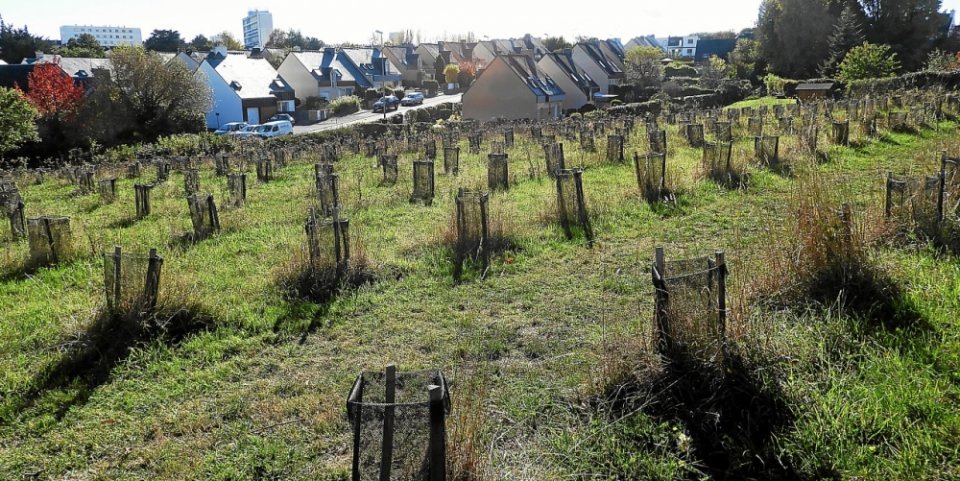
The city of Lorient has developped an urban and local forestry partnership to supply the city in firewood chips and building timber. This project is based on local economy and on collaboration with local foresters to provide a sustainable management of this resource.
- Local production of wood to supply (energy and building timber) the city of Lorient
- Reduce the environmental impacts of importation
- Foster the local economy
- Enhance the city by using abandonned sites for logging
- Trees planting in urban abandoned sites
- Sites management and maintenance
- Eco-sourced (wood) material povision for building
Global (estimated) cost of the project: 200k€- 1M€
Financing mechanism: cluster1 public financing
Urban Challenges:
1. Climate issues: Climate mitigation, Climate adaptation
2. Urban water management and quality: Urban water management and quality, Flood management
3. Air quality: Air quality at district/city scale
4. Urban space and Biodiversity: Biodiversity, Urban space design
5. Urban Regeneration and Soil: Soil management
6. Resource efficiency: Raw materials
7. Public health and well-being: Quality of life
8. Environmental justice and social cohesion: Envir. Justice Procedural Justice, Envir. Justice Recognition
9. Urban planning and governance: Governance in planning
11. Green economy: Direct economic value of NbS, Circular economy
NbS Type:
Objects Shapes / On the ground / Structures characterized by food and resource production / Urban forests
- City of Lorient (Contractiong authority & Project manager)
- Jean Luc Leroux, Local foresters from Ti Beo (Site maintenance, wood production)
- Lorient municipality
GOVERNANCE MODEL:
Governance cluster: cluster2 new public
Partnership between Lorient municipality and local foresters.
Process enablers:
Economy drivers → Public private partnerships
...
Process inhibitors:
... → ... → …
...
BUSINESS MODEL:
Business cluster: Social
Business model: Encourage sufficiency
Business cluster: Social
Business model: Adopt a stewardship role
This project is based on local production of wood to supply (energy and building timber) the city of Lorient. It allows to reduce the environmental impacts of importation, foster the local economy, and also enhance the city by using abandonned sites for logging.
Expected time for the NbS to become fully effective after its implementation: medium (between 2 to 5 years)
FeedBack: still well adapted
Expected life time of the intervention: more than 30 years
Dates (for project delivered): ongoing (2018)
Laureate "Coucours Capitale Française de la Biodiversité" 2013 (Competition Biodiversity French Capital City - http://www.capitale-biodiversite.fr/)
Further information
Media cover:
FNCOFOR (Fédération Nationale des Communes Forestières) Website
Article of the LE TELEGRAMME magazine
Contact:
Alice Duquesnoy (alice.duquesnoy-mitjavila@plante-et-cite.fr)
Olivier Damas
Plante & Cité (https://www.plante-et-cite.fr/)
Maison du Végétal, 26 Rue Jean Dixmeras, 49000, Angers
Nature4Cities (https://www.nature4cities.eu/) aims to develop a knowledge diffusion around Nature-Based Solution (NbS) and a decision support platform through new collaborative models.
This project is part of the Nature4Cities's pioneer case studies database, it will feed the observatory, NbS pre-selection and replication tools, gathered into the Geocluster4NBS.
This project was chosen as a pioneer case study for the following reasons: the project is a combination of local economy and hedge maintenance
Nature4Cities project has received funding from the European Union’s Horizon 2020 research and innovation program under grant agreement No 730468.

